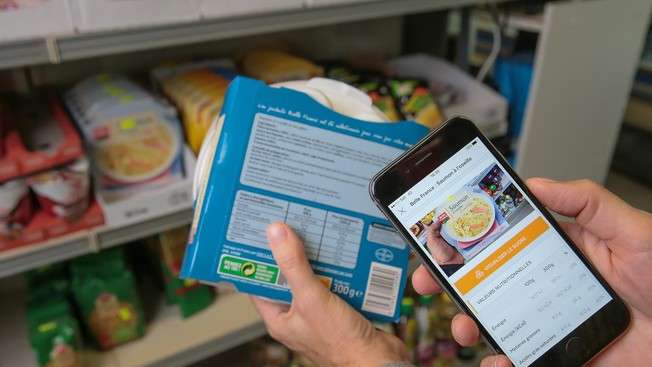Food data at your fingertips

EPFL is launching openfood.ch, a website that provides the public with data on more than 14,000 food products sold in Switzerland. The website's data set will be a real gold mine when it comes to developing applications and innovative projects aimed at improving people's diet.
Nutrition is a key factor in preventing obesity and chronic diseases like diabetes. Despite product labeling requirements, consumers have a hard time knowing – and keeping track of – exactly what they eat. Openfood is an EPFL initiative being launched today that will provide free and easy access to the largest food database in Switzerland via computer or smartphone.
"We want to make this information available to everyone, from the general public to researchers, so that we can better assess what we are eating but also to encourage the development of new projects that use this database," says Marcel Salathé, an EPFL professor and the founder of the Openfood project. EPFL has already created a free app that shows one way the data set can be used: people using the app can scan the bar code of products available in large grocery stores in order to see their ingredients and how much sugar the products contain. "By simplifying the sometimes complex information on product labels, Openfood helps consumers know what they are really buying, and this makes it easier to eat healthier," says Salathé.
Researchers, journalists, medical professionals and startups will be able to use this open-source data to come up with new tools in the area of nutrition. This could be a smart refrigerator, an app that helps find a healthier alternative product or a way of tracking daily meals in order to improve the user's overall diet. While 14,000 products sold in Switzerland are already included in the database, anyone who uses the app can add more products, anonymously, with just a few clicks.
A bridge between science and the public
The Openfood project was developed in partnership with the Kristian Gerhard Jebsen Foundation, a philanthropic foundation whose goals include ensuring the general public receives objective scientific information on nutrition and health issues. Since most people have a mobile phone these days, technology can build a bridge between science and the general public, offering an objective alternative to the biased information that comes out of the food industry and from sources lacking any scientific backing.
Alongside the Openfood project, EPFL has also developed factfood.org, a website that will publish articles and scientifically proven information on nutrition, under an editorial partnership with the University Hospital of Lausanne (CHUV). The factfood.org website, which is in French and English for starters, is an additional source of information alongside Openfood. Its aim is to help consumers tell fact from fiction and learn more about nutrition.
Provided by Ecole Polytechnique Federale de Lausanne



















